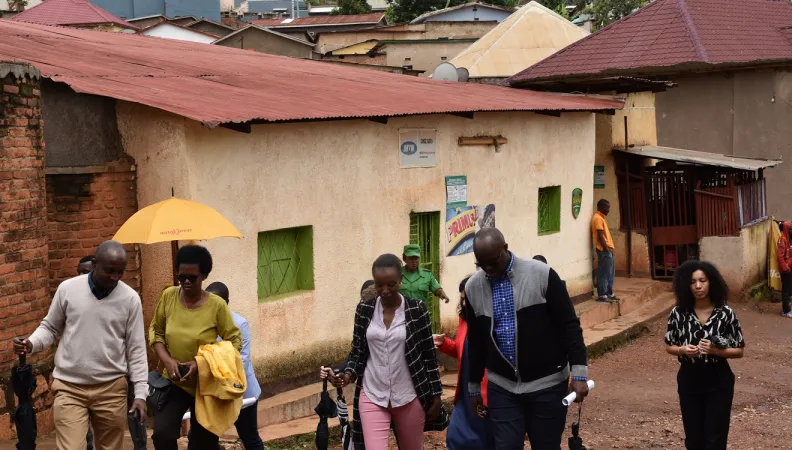Share the page
2 Projects to Lower Poverty and Inequality in Rwanda
Published on

As part of the effort to combat poverty and inequality in Rwanda, two new projects were recently signed and launched: one to improve conditions in Kigali's informal settlements and the other to improve technical training and employability. Together, they will benefit more than 60,000 people.
In Rwanda, the government has adopted "Vision 2050", a bold strategy that aims to foster sustainable development and improve Rwandans’ standard of living. In line with this strategy and at the request of the government, AFD is supporting two new projects, the first, for informal settlements, will benefit 60,000 residents and the other will help 2,600 students obtain technical training, which will in turn boost their employment prospects.
Improving the quality of life in informal settlements
Kigali infrastructure has not kept up with the city’s rapid growth. Despite land reforms launched in 2009, more than half of the population lives in informal settlements that are subject to high natural risks induced by climate change.
To support the city and the government, AFD and the European Union are financing a project to improve the living conditions of three informal settlements in Kigali with a €40M loan from AFD and a €10M grant from the European Union delegated to AFD.
"The project will improve access to basic infrastructure and social services,” says Arthur Germond, AFD's Director in Rwanda. It will also assess different models of decent and affordable housing for low-income households, with an eye to adding to housing stock in the coming years. “In total, 60,000 people will benefit from this project!"
Further reading: Rwandan Public Services are Going Digital
Training to boost the employability of young people
In parallel, Rwanda aims to create 1.5 million jobs between 2017 and 2024. To expand vocational training, the country has set a target of 60% of secondary school students entering technical and vocational education and training (TVET) by 2024.
Following the success of the first phase of the AFTER I project, implemented with Expertise France, the Rwandan authorities asked AFD to scale up the project. The AFTER II project aims to improve technical and vocational education and learning conditions in order to strengthen the skills of Rwandan youth in line with the requirements of the job market.
Richard Nasasira, principal of Kitabi IPRC, is pleased with this support. "Kitabi IPRC has been in existence since 2006 and the college has never before received significant investment to support its education system.”
"The four beneficiary institutions will increase their capacity and be able to offer better living and study conditions on campus thanks to the construction and equipping of classrooms, laboratories and workshops, dormitories, canteens, and infirmaries,” said Arthur Germond. “In total, 2,600 students will benefit from this project, with 1,100 additional beds to improve living conditions on campus."
The buildings will be built according to the requirements for enhanced energy efficiency and adaptation to climate change. This project is financed by a €29M loan from AFD to the Republic of Rwanda, a €6.8M grant from AFD, and a €6M grant delegated to AFD by the Luxembourg Agency for Development Cooperation, LuxDev.
The content of this project information sheet falls under the sole responsibility of the AFD and does not necessarily reflect the opinions of the European Union.
